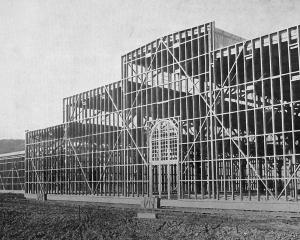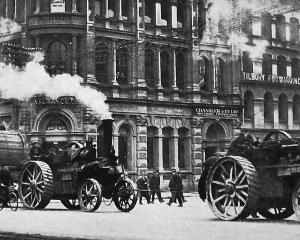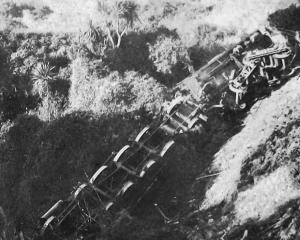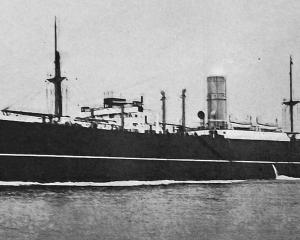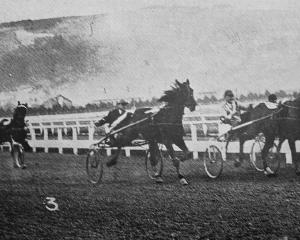This is not so much on account of the grain crops, which are practically past redemption, but for feed. Stock is suffering severely.
The lambs are not doing at all well. The great bulk of them will require to be fattened on rape and turnips, and it is for these crops in particular that a couple of days' good rain is required.
Some farmers have sown both rape and turnips two or three times, but while food brairds were obtained, the young plants have wilted away for want of moisture.
There is a big area at present under these crops, and if a good rain were experienced the feed problem would be in a fair way to solution.
But unless a copious rain comes soon the position must become more serious, and proportionately very few lambs will reach a condition fitting them for export, while there must be a heavy mortality amongst stock generally.
The meeting of members of the North Otago Beekeepers' Association, which was to have taken the form of a field day at an apiary at Alma, will now not be held owing to the deplorable condition of the industry.
All around that district bees are dying for want of feed and are robbing each other of the little honey that has been already stored. This civil war is seriously thinning their ranks, and dead bees are numerous outside all the hives. No better instance of the extent of the drought could be cited.
■ In view of what is required to bring the war to a speedy termination - and the opportunity is almost at hand - Britain must adopt the modified form of conscription set forth by Mr Asquith's Cabinet.
It is a fair and just scheme.
It is not right that married men should have to go to war before the unmarried, unless their wives and children are left with sufficient means to maintain them without feeling the pangs of poverty, or without too great a burden being left upon their wives, however patriotic and self-sacrificing the noble British mothers are.
It is to their everlasting honour that there are not many women who are not ready to make the greatest of the sacrifices that a woman can make.
There are 650,000 unmarried men who have not signified that they are willing to come forward to defend their liberties, their proud heritage, and their homeland.
Until they do so, the Government cannot, according to the pledge given to the married men by Mr Asquith, call upon the married men to serve.
It is an impasse that can be removed only by the voluntary enlistment of every unmarried man, and as, according to Lord Kitchener, the rate of enlistment necessary for carrying out his plans for victory has fallen so far below the normal, the Government is now compelled to ask for power to make those 650,000 men either do their duty as soldiers or produce good and sufficient reasons for being absolved from doing so.
■ At St. Matthew's Church, Auckland, on Sunday (reports the Herald), Colonel W. E. Gillam said that from the first day of landing at Anzac, with the exception of the one day's armistice, fighting had been continuous.
‘‘I have often, when at Anzac,'' he said, ‘‘tried to count 10 seconds between the sounds of rifle fire during day and night, and I have not succeeded.''
He also mentioned that it was thought the Maheno would be employed solely for the succour of New Zealanders, but the idea was impracticable. They had naturally to take any cases which came alongside, whether the men were New Zealanders or not.
He had seen many men with wounds who he felt could not survive, but many had done so.
The ship was so full at times that one had to step over wounded men lying on the decks, in order to get to one's cabin. Colonel Gillam paid a tribute to the excellent work done by the doctors and nurses.
- ODT, 7.1.1916.

